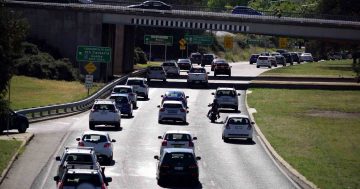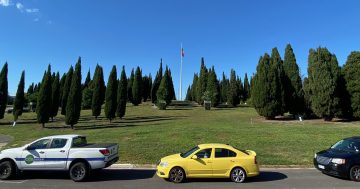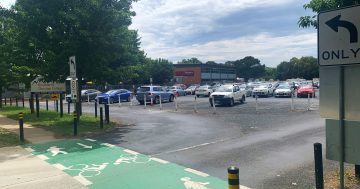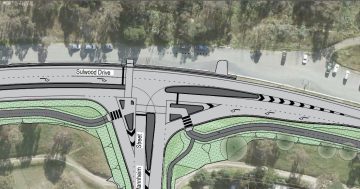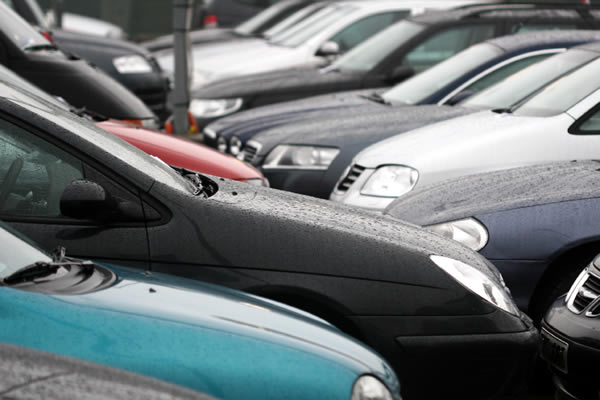
Yesterday I was walking through Commonwealth Park and I noticed that the nearby carpark, which was always full before pay parking was introduced, was almost completely empty.
There were two cars in the carpark, both paying the daily rate of $12 (I think). This means that the government’s return after spending thousands of dollars on installing pay parking machines in that carpark is just $24 per day.
I was reminded of what I learned about supply and demand in Econ1001. If you set the price just right, you can fill every space and make the maximum amount of money, whilst making sure customers are happy to pay the amount being charged.
I thought further about the idea and came up with something I’d like to share: a carpark that adjusts its pricing to the market on a daily basis. Here’s how it would work:
Thought Experiment – Market Price Parking
Imagine a carpark in the center of the city, say the London Circuit carpark next to the Melbourne Building. The ACT Government installs a radical new system of parking lot pricing to optimise revenue and ensure effective use of available parking space. A digital sign is installed at the entrance to the parking lot (kind of like a petrol station price sign). The sign displays the daily parking price and the number of spaces currently available.
The first day the car park is ‘opened’, the price is set to $5. Obviously, this is very low. Parking will be in high demand at this price and it is highly likely that the carpark will fill up completely. The parking machines and boom gates collect statistics (It’s important to know how fast the carpark fills up).
On day two, after an algorithm or economist has reviewed the data from the first day, it may be decided that since the carpark filled up so fast at such a low price, the price will be increased to $8. It is now much cheaper to catch a bus than to drive, and there are cheaper or free carparks further away that some people who parked here on day one are willing to walk from. Still, $8 is cheap for all day city parking, so the carpark fills up completely, just not as quickly as the day before.
Over the next few days the price rises steadily, $10 the third day (now you can park for the same price at the Canberra Centre, for example, so a few customers are lost), then $11, and it settles around $11-13, depending on the day of the week etc. The price settles around here because other carparks in the city are priced about this much.
If the parking algorithm/economist has done it/their job correctly, there should be exactly one free space available in the carpark once everyone who is willing to park there has arrived . This level of patronage corresponds to the maximum revenue possible for this carpark, based on the competitor pricing. If you raise the price, more parks will be empty, if you lower the price, the carpark will remain full and you’ll just make less money.
One would expect over the next months that the pricing of this carpark would vary only with changes in parking/transport costs of other fixed services.
Now imagine two other scenarios that build on this idea:
- Remember the carpark I talked about at the beginning of this article. $12/day, two cars, maybe a 15 minute walk from most places in the city. I would be willing to walk that far to get to walk, but not if I could park closer for the same price. Let’s install this system there too! Suddenly, parking is $2 a day and the carpark fills up completely. Instead of making $24, the government is making $400. After a few days the price settles around $5-6 a day, bringing the daily revenue of the carpark up to around $1000 (I’m assuming it has about 200 spaces) and making people like me happy with cheaper parking.
- Extend this idea to all the carparks in the city. It’s very hard to predict what would happen with the pricing if there were no fixed prices to set the market up. You can at least imagine that places like the Canberra Centre that might not have this system would have some influence over market pricing. The the most desirable carparks, the closest to the city, would have high prices. It could be more than it is now, (or would the memory of the previous fixed prices play some role in determining a ~$12 price?) and as you moved out from the city, pricing would get cheaper.
Points of further discussion:
- Obviously, this maximises revenue, but it it good for citizens? (Are artificially low prices better?)
- Are there any improvements or modifications to this idea that would make it work perfectly?
- If this plan were to be rolled out across all city parking lots (it would work most effectively this way) would you support it? Why? Why not?
- What about a variable price based on time of entry?
- Could this encourage public transport usage? Would a similar system for public transport work as well?












